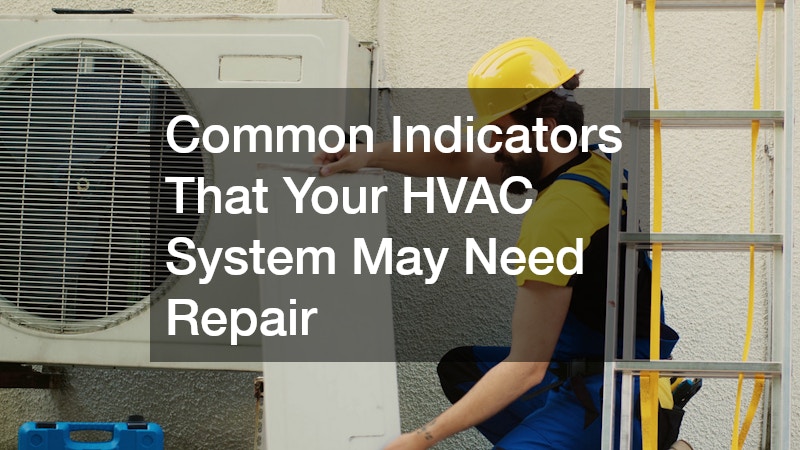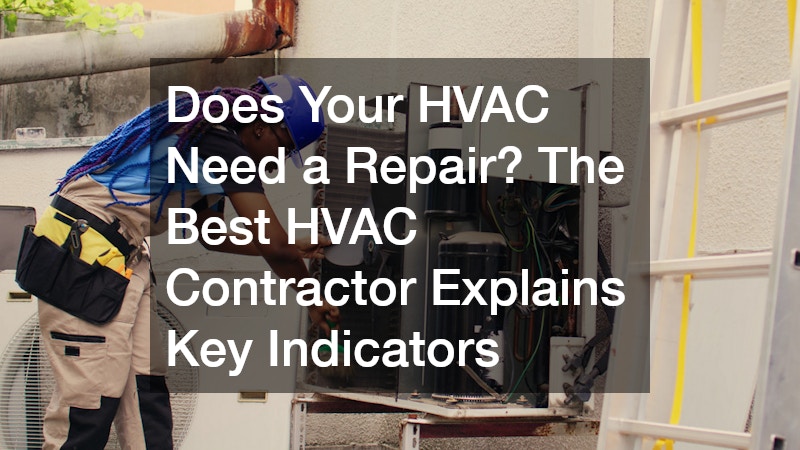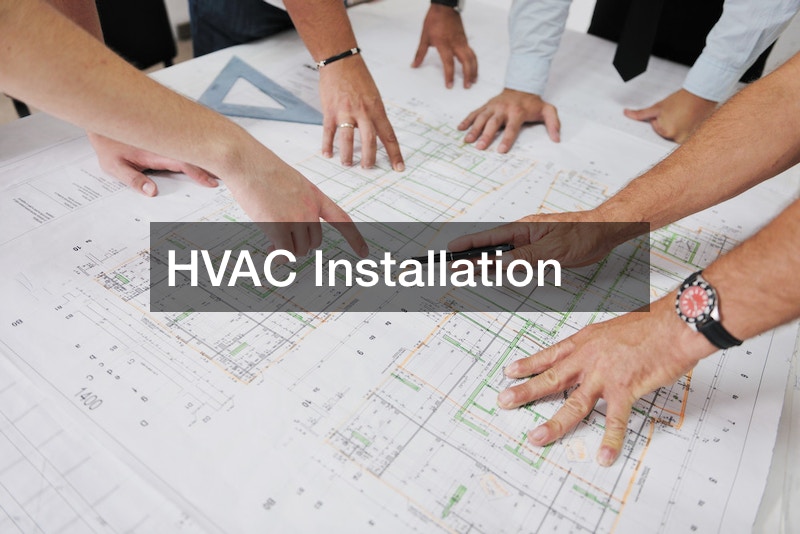In recent years, maintaining a comfortable indoor environment has become increasingly important. Whether it’s the sweltering heat of summer or the biting cold of winter, a reliable HVAC system is crucial in ensuring our daily comfort. However, like any other household appliance, HVAC systems are not immune to wear and tear. This article explores the common indicators that your HVAC system may need repair, as explained by the best HVAC contractors.
How Do I Know If My HVAC System Needs Repair?
Strange noises emanating from your HVAC system can be one of the first signs that something is amiss. Rattling, clanking, or buzzing sounds are typically not normal operations signs and might suggest mechanical issues.
These noises could indicate anything from loose components to more severe problems like a failing motor or compressor issues. Addressing these noises early can save significant repair costs by preventing further system damage.
Unexpected spikes in energy bills can also be a telltale sign that your HVAC system needs attention. If your energy consumption remains consistent, but your bills are increasing, it might be due to your HVAC system not operating efficiently. Over time, wear and tear can reduce system efficiency, causing it to use more energy to maintain the same temperature levels, particularly if it’s struggling with mechanical issues.
Inconsistent temperatures throughout your home can further indicate that your HVAC system is in trouble. If you notice certain rooms are significantly colder or warmer than others despite having the same thermostat settings, your system may be struggling to distribute air properly. This could be due to issues such as ductwork leaks, inadequate insulation, or a failing component within the HVAC unit itself.
What Are The Common Signs of an HVAC Malfunction?
Frequent cycling is a common sign that your HVAC system is malfunctioning. If the system turns on and off more frequently than usual, it may be trying to compensate for a problem, such as an improperly sized unit, thermostat issues, or airflow blockages. This constant cycling can lead to increased wear and tear on the system, ultimately shortening the lifespan of your unit.
Poor airflow is another indication that something is wrong with your HVAC system. If you notice weak or limited airflow coming through the vents, it may be a result of clogged filters or ductwork issues, such as blockages or leaks. Additionally, the blower fan may not be working correctly, further reducing the system’s ability to circulate air effectively.
Foul odors when your HVAC system is running can be both unpleasant and concerning. Musty smells may indicate mold or mildew growth within the ductwork, while burning odors could be a sign of an electrical issue or overheating components. These problems not only affect indoor air quality but also pose potential health risks and fire hazards, making it crucial to address them swiftly.
When Should I Call a Professional HVAC Contractor?
An unresponsive thermostat is a clear signal that it’s time to call a professional HVAC contractor. If your system doesn’t respond accurately to thermostat settings, or if the thermostat itself displays incorrect readings, there may be an issue with the thermostat connection, wiring, or calibration. A malfunctioning thermostat can lead to inefficient system operation and wasted energy, underscoring the importance of professional intervention.
Water leaks around your HVAC system are another red flag that warrants professional attention. Pooling water or any leakage can indicate refrigerant issues, which may compromise your system’s cooling capabilities. Water leaks can also lead to property damage or mold growth if not addressed promptly. A professional contractor is equipped to diagnose and fix the underlying causes of leaks, ensuring your system runs smoothly.
The age of your HVAC system plays a significant role in determining when to seek professional help. Older systems, typically over 10-15 years old, are more prone to frequent repairs and may require an upgrade to newer, more energy-efficient models. An HVAC contractor can assess whether your current system is still viable or if it’s more cost-effective to invest in a newer unit, providing guidance tailored to your specific situation.
Conclusion
Recognizing the signs of HVAC trouble early can prevent more significant issues and ensure your home remains comfortable year-round. While some minor maintenance tasks can be handled independently, many problems require the expertise of the best HVAC contractor in the local area. Understanding the key indicators of HVAC malfunction helps maintain an efficient, effective system and provides peace of mind knowing you and your family will be comfortable in your home.




